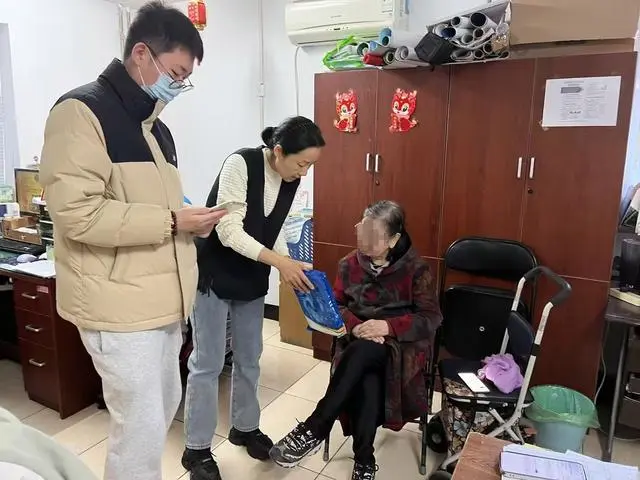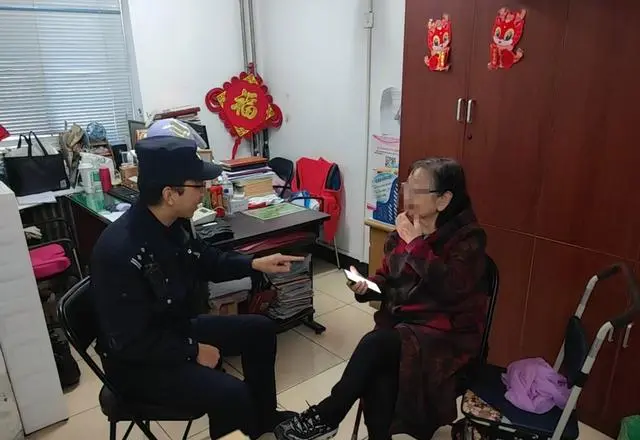
Recently, a scam involving AI face-swapping technology was successfully intercepted in a community in Fengtai District, Beijing. Fraudsters used sophisticated tactics to impersonate Jack Ma and attempted to lure an elderly woman into purchasing health products. The criminal activity was uncovered due to the timely intervention of community workers and police officers, preventing any financial loss to the elderly woman.
The incident began when an elderly woman sought help at the community service center and revealed that she had received a phone call from someone claiming to be a "disciple of Jack Ma." The scammer initially gained the woman's trust by sending small amounts of phone credits, and then claimed to be running a poverty alleviation project that promised substantial investment returns. To further reassure the woman, the scammer suggested a video call with "Jack Ma."

Using AI face-swapping technology, the fraudster disguised themselves as Jack Ma, appearing on the elderly woman’s phone screen during the video call. Due to the high level of realism of the technology, the elderly woman did not doubt the authenticity of the person in the video, even believing she was speaking directly with Jack Ma. The scammer successfully gained her trust and then asked her to download QQ software for further investment operations.
Fortunately, community workers and police officers quickly identified the scam through detailed questioning, and revealed the truth to the elderly woman during another video call. Upon seeing the police officer on screen, the scammer became visibly panicked and quickly ended the call.
The Role of AI Technology and the Elderly's Psychological Vulnerabilities
- In this scam, the AI face-swapping technology played a crucial role. The face-swapping technology allowed the scammer to precisely superimpose a real person’s facial features onto another’s, making the “Jack Ma” in the video look nearly identical to the real individual.

-
Many elderly individuals lack sufficient awareness of internet security, particularly emerging technologies such as AI face-swapping and deepfake technology. As a result, they are more susceptible to scams and are likely to believe they are truly having a video conversation with Jack Ma.
-
Additionally, Jack Ma is widely known and influential in society. By impersonating Jack Ma’s "disciple" and offering a fake “video call” with him, the scammer significantly increased their credibility. The elderly woman, who had never met Jack Ma in person, was easily convinced and lowered her guard.
-
Furthermore, the scammer used a strategy of offering small favors—such as recharging the woman's phone—to build a relationship of trust. Through gradual manipulation, the fraudster gained psychological control over the elderly woman, further lowering her defenses and convincing her of the “investment opportunity.” The elderly woman was eventually drawn into a larger trap set by the scammer.
Elderly Individuals and Businesses Should Strengthen Fraud Prevention
Police are reminding residents, especially the elderly, to remain vigilant when it comes to preventing fraud. When receiving calls or video calls from strangers, individuals should never blindly trust the identity claimed by the caller, avoid downloading unknown software, and refrain from making any transfers or purchases. Additionally, they should seek help from family members, friends, or community workers to verify the authenticity of the information.
Fraudsters are using a combination of technology and psychological manipulation to precisely control their victims. In the face of AI-driven scams, society needs to build stronger defenses through technology, educational outreach, and emotional support to prevent more people from falling victim. Particularly on short video and social media platforms, multiple technologies and methods need to be employed to identify fraudulent accounts and detect fake celebrity videos from the source.
-
Identifying Abnormal Devices. Dingxiang Device Fingerprinting records and compares device fingerprints to distinguish between legitimate users and potential fraud activities. The technology uniquely identifies each device and detects maliciously controlled devices such as virtual machines, proxy servers, and emulators. It analyzes abnormal behaviors such as multiple account logins, frequent IP address changes, and changes in device attributes that do not match user habits, helping track and identify fraudulent activities.
-
Identifying Accounts with Abnormal Operations. Login from different locations, device changes, new phone numbers, and suddenly active dormant accounts require frequent verification. Additionally, continuous identity verification during sessions is essential to ensure that the user’s identity remains consistent throughout the interaction. Dingxiang atbCAPTCHA can quickly and accurately distinguish between human and machine operators, precisely identify fraud, and monitor and intercept abnormal activities in real-time.
-
Preventing Fake Videos with Face-Swapping. Dingxiang’s full-chain, panoramic facial security threat perception solution uses multidimensional information such as device environment, facial information, image forgery detection, user behavior, and interaction status for intelligent verification. It quickly identifies over 30 types of malicious attacks, including injection attacks, live-body forgery, image forgery, camera hijacking, debugging risks, memory tampering, rooting/jailbreaking, malicious ROMs, and emulators. After detecting fake videos, fake facial images, or abnormal interaction behaviors, it automatically blocks the operation. It also allows flexible configuration of video verification strength and user-friendliness, implementing a dynamic mechanism to strengthen verification for abnormal users while maintaining normal atbCAPTCHA for legitimate users.
-
Identifying Potential Fraudulent Threats. Dingxiang Dinsight helps businesses with risk assessment, anti-fraud analysis, and real-time monitoring, improving the efficiency and accuracy of risk control. Dinsight’s daily risk control strategy processes data in less than 100 milliseconds and supports the customizable integration and storage of multiple data sources. It uses deep learning technologies, established indicators, strategies, and models to enable self-performance monitoring and iterative mechanisms. Paired with the Xintell intelligent model platform, Dinsight can optimize security strategies for known risks, mine potential risks from risk control logs and data, and configure risk control strategies for different scenarios with one click. The platform standardizes complex data processing, mining, and machine learning processes, offering one-stop model-building services from data processing and feature derivation to model deployment.
Additionally, elderly individuals and the public need to understand that AI face-swapping technology can create fake dynamic videos. They should remain alert to high-quality video images and not easily trust the authenticity of video content. In similar situations, do not blindly follow instructions out of fear. Instead, seek help from family members or the police promptly.


